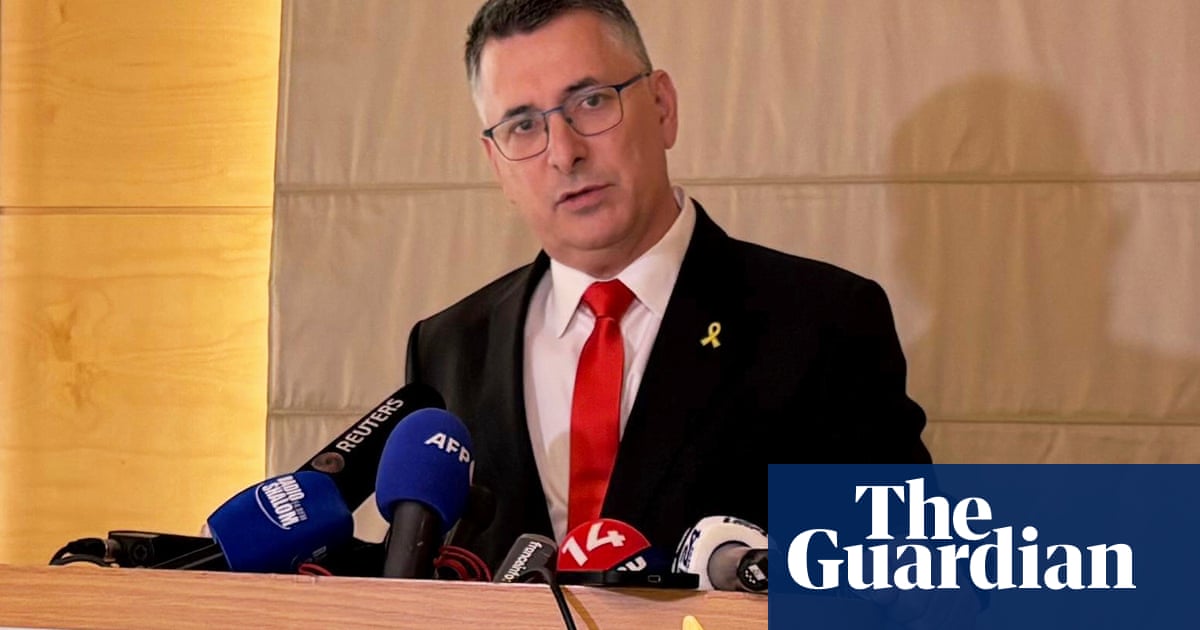Photo credit: www.theguardian.com
Recent reports reveal that UK Foreign Secretary David Lammy held a meeting with Israel’s Foreign Minister Gideon Sa’ar during Sa’ar’s private visit to London. The UK Foreign Office acknowledged that they discussed various issues concerning the Middle East, particularly in light of Israel’s ongoing actions in Gaza.
Sa’ar’s unannounced arrival coincides with heightened tensions as Israel has resumed military operations in Gaza following the end of a ceasefire. His visit has incited criticism and prompted activists to request an arrest warrant on claims of his involvement in alleged war crimes.
The Global Legal Action Network (Glan), along with the Hind Rajab Foundation (HRF), submitted formal requests to the UK’s attorney general and the director of public prosecutions for a private prosecution against Sa’ar. They asserted that his role in the Israeli security cabinet and his statements regarding Gaza substantiate the claims of his complicity in war crimes perpetrated by Israeli forces.
Additionally, they prepared documentation for an arrest warrant to be filed with Westminster Magistrates’ Court. The legal groups emphasized that Sa’ar’s public position implicates him directly in the decisions impacting the actions taken during the military offensive in Gaza.
Notably, the Israeli embassy did not respond to inquiries regarding Sa’ar’s visit. The Israeli administration has consistently refuted allegations of war crimes and has dismissed the authority of the International Criminal Court (ICC) and the International Court of Justice (ICJ).
The HRF has faced criticism in Israel for targeting Israeli military personnel abroad for potential legal action around alleged war crimes. Critics claim that the organization’s leaders have connections to groups such as Hezbollah and Hamas, accusations which the HRF strongly denies, insisting their founders advocate for the rights of all individuals under international law without any ties to politically motivated entities.
During the meeting, Lammy expressed concerns regarding the humanitarian situation in Gaza and the protection of aid workers, along with calls for a cessation of settlement expansions in the West Bank. Sa’ar has been scrutinized for his remarks that many interpret as justifying the withholding of humanitarian assistance from civilian populations.
Independent MP Zarah Sultana described Sa’ar’s presence in the UK as a blatant disregard for both international law and the plight of Palestinians suffering under military occupation, thus voicing her support for the activists’ legal initiatives aimed at accountability.
Legal representatives from Glan and HRF pointed out that criminal proceedings have led to ICC arrest warrants for other senior Israeli officials, including Prime Minister Benjamin Netanyahu. They noted that the military operations in Gaza have claimed tens of thousands of lives amid restrictions on humanitarian aid for the approximately 2.2 million residents.
As recent developments unfolded, the ICC has reached out to the Hungarian government for clarification regarding its disregard for the ICC warrant during a visit by Netanyahu, marking significant tensions within international legal frameworks concerning these issues.
Furthermore, the ICJ is reviewing a genocide claim brought forth by South Africa concerning Israeli actions in Gaza. Provisional orders had already urged the Israeli government to halt military offenses and address the humanitarian crisis, underscoring the ongoing urgency of this situation.
Glan and the HRF reiterated in their press statement that Sa’ar, as a member of the security cabinet, shares responsibility for decisions that have led to extensive civilian casualties in Gaza, branding the military campaign as potentially genocidal.
The UK government has referred the arrest warrant inquiries to the attorney general’s office while highlighting that humanitarian discussions were central to Lammy’s meeting with Sa’ar. They also indicated that the denial of access to UK MPs by Israeli authorities raised further concerns about the democratic engagement in the region.
The complex dynamics surrounding Sa’ar’s visit encapsulate the international challenges in addressing accusations of war crimes, particularly against a backdrop of ongoing conflict and humanitarian crises in the region. With calls for accountability rising, the intersection of law, politics, and human rights remains pivotal in navigating the discourse on these contentious issues.
Source
www.theguardian.com

